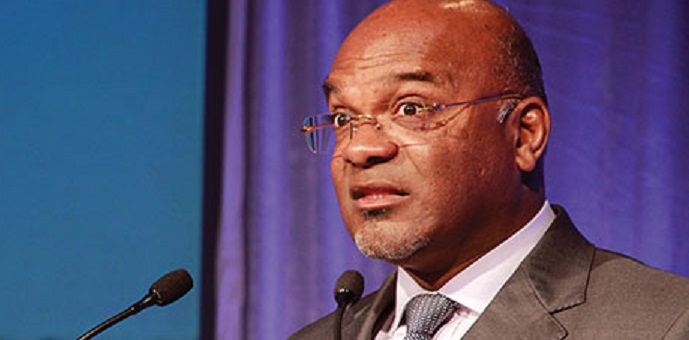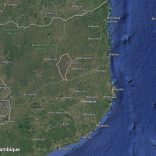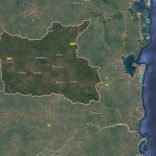Mozambique: Four people killed by terrorists in Balama - AIM report
Call to reduce accidents in Mozambican waters: 155 people dead, 77 missing in 2017

File photo / Minister Carlos Mesquita
More vigorous measures by Mozambique’s maritime administration could reduce the number of accidents in Mozambican waters, and the deaths they cause, said Transport Minister Carlos Mesquita on Monday.
Opening a national planning meeting in Maputo of the National Maritime Institute (INAMAR), Mesquita said that last year 55 boats sank in Mozambican waters, causing the deaths of 155 people, while a further 77 passengers and crew members are still listed as missing.
This was a slight improvement on 2016, when 64 boats sank, causing 208 deaths, with a further 20 people listed as missing.
Since the meeting is bringing together maritime administrators from all over the country, Mesquita announced that he would take advantage of their presence to “launch an appeal for a vigorous struggle against all practices that endanger the safety of people and property at sea, and on lakes and rivers”.
The maritime authorities, the Minister continued, “need to work together to improve the protection of human lives. Vessels which do not meet the conditions to safely transport people and goods must be withdrawn from circulation”.
He called for tighter inspection of boats, in order to prevent overloading (one of the main causes of accidents) and to check the qualifications of crew members. “We must be implacable in enforcing maritime safety”, Mesquita insisted.
He was aware that the Maritime Administrators complain that they are short of the resources they need to ensure maritime safety, but assured them that efforts are under way to provide them with new vessels and vehicles “to improve search and rescue conditions”. This effort, he pledged, will be extended to maritime administrations along the entire coast, and in the main inland waters.
How people face crocodiles and other dangers crossing the river in Malei, Zambézia
Mesquita said that the development of offshore oil and gas exploration “will certainly require from the maritime regulatory authorities a new posture in terms of planning, capacity building and organisation to respond to the new challenges raised by this activity”.
INAMAR, he added, must be able “to participate actively in promoting good practices so that maritime transport occurs in a safe environment, free of pollution”.
The government is working with cooperation partners, Mesquita said, to improve the skills of INAMAR staff “in matters of safety, protection, facilitation and the prevention of hydrocarbon pollution”.













Leave a Reply
Be the First to Comment!
You must be logged in to post a comment.
You must be logged in to post a comment.